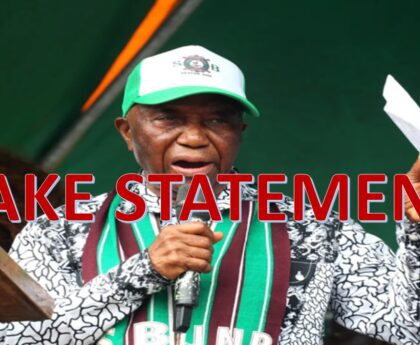In a landmark legal decision, Hon. Justice Ivan Sesay-presiding, Hon. Justice Alhaji Momoh-Jah Stevens, and Hon. Justice Adrian Fisher have ordered former President Ernest Bai Koroma to pay USD 135,000.00 to the government of Sierra Leone within seven days. The ruling comes as a result of allegations that the former president caused financial loss to the state during his tenure.
Ernest Bai Koroma served as the President of Sierra Leone from 2007 to 2018, leading the nation through a period of post-civil war recovery and economic development. However, his administration has faced scrutiny, and allegations of corruption and financial mismanagement have been raised.
The Legal Proceedings:
The legal proceedings leading to this judgment were initiated by the Sierra Leone government, accusing the former president of causing substantial financial loss to the state through actions taken during his presidency. The case was heard by a panel of three distinguished judges: Hon. Justice Ivan Sesay-presiding, Hon. Justice Alhaji Momoh-Jah Stevens, and Hon. Justice Adrian Fisher.
The Judges’ Decision:
After a thorough examination of the evidence presented in court, the three judges unanimously ruled in favor of the government, holding former President Ernest Bai Koroma responsible for causing financial loss to the state. The judgment specifically orders him to pay USD 135,000.00 to the government of Sierra Leone as restitution.
Legal Basis of the Ruling:
The judgment is based on a careful analysis of the evidence and a determination that the former president’s actions during his tenure resulted in a quantifiable financial loss to the government. The court found that there was a direct connection between specific decisions or actions taken by President Koroma and the financial detriment suffered by the state.
Implications of the Decision:
This decision sets a significant precedent in Sierra Leone, highlighting the accountability of public officials, even those who have held the highest office in the land. It underscores the importance of transparency, responsible governance, and the rule of law in ensuring the proper functioning of a democratic society.
The ordered payment of USD 135,000.00 serves as both a symbolic and practical measure to recover part of the alleged losses incurred by the government during President Koroma’s term. The seven-day deadline for payment adds a sense of urgency to the judgment, emphasizing the gravity of the findings against the former head of state.
Public Reaction:
The ruling has sparked varied reactions from the public, with some applauding the judiciary for holding a former president accountable, while others express concern about potential political implications. The case has reignited discussions about the need for strong institutions, anti-corruption measures, and checks and balances within the Sierra Leonean political system.
Conclusion:
The judgment against former President Ernest Bai Koroma represents a significant moment in Sierra Leone’s legal and political history. It reinforces the principles of accountability and transparency, sending a clear message that even the highest officeholders are not immune to legal scrutiny. As the seven-day deadline approaches, all eyes will be on the former president’s response and the broader implications of this landmark decision for the nation’s governance and democratic institutions.




